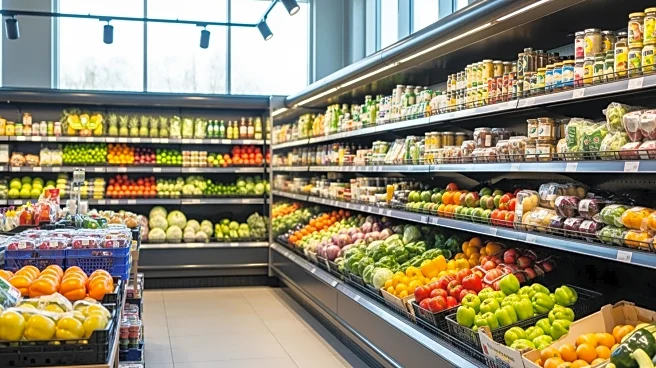What's Happening?
Southeastern Grocers has announced a significant rebranding effort, transitioning to The Winn-Dixie Co., and will focus its operations primarily in Florida. As part of this strategic shift, the company
is exiting several states, including Alabama, where it will close or sell its 32 Winn-Dixie stores and eight Harvey’s Supermarkets. The company plans to transfer ownership of these locations to other grocery chains, with some stores in southern Georgia remaining open. This move is expected to be completed by early next year. Southeastern Grocers CEO Anthony Hucker expressed gratitude to the company's associates and customers for their loyalty, emphasizing the company's commitment to ensuring a respectful transition for its employees.
Why It's Important?
This rebranding and market exit by Southeastern Grocers marks a significant shift in the grocery retail landscape, particularly in the southeastern United States. By concentrating its efforts in Florida, Winn-Dixie aims to strengthen its market presence and streamline operations. This decision could impact local economies, particularly in Alabama, where job losses may occur due to store closures. However, the transition of some stores to other grocery chains, such as Food City, which plans to hire the majority of the existing store associates, may mitigate some of these impacts. The rebranding could also influence competitive dynamics in the grocery sector, as other chains may seek to fill the void left by Winn-Dixie's exit.
What's Next?
The transition of store ownership is expected to be completed by early next year, with Food City taking over some locations in Alabama by early November. As the rebranding progresses, Winn-Dixie will focus on expanding and enhancing its operations in Florida and Georgia, where it plans to operate approximately 130 grocery stores and 140 liquor stores. The company will likely continue to evaluate its market strategy to ensure sustainable growth and competitiveness in its core regions. Stakeholders, including employees, customers, and local communities, will be closely watching the transition process and its outcomes.










